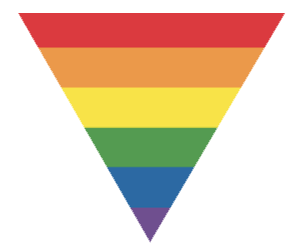Written by Chuck LeBlanc
 When you start taking responsibility for other people’s happiness, then what you’re saying is essential, other people can’t be happy unless you step in. Part of taking the time to figure out what you’re responsible for is seeing what part of a bad or difficult or painful or awkward situation is for you and what part of it is not for you, essentially, what are you responsible for? In those situations, people pleasers or fixers have a particularly difficult time seeing this difference because their world feels safest when they’re taking care of other people. I mean, think about it;
When you start taking responsibility for other people’s happiness, then what you’re saying is essential, other people can’t be happy unless you step in. Part of taking the time to figure out what you’re responsible for is seeing what part of a bad or difficult or painful or awkward situation is for you and what part of it is not for you, essentially, what are you responsible for? In those situations, people pleasers or fixers have a particularly difficult time seeing this difference because their world feels safest when they’re taking care of other people. I mean, think about it;
if you spend your time constantly anticipating the needs of others and
allowing them to walk all over you, then what are you doing?
Well, you’re focusing all your attention on other people. We do this specifically to protect ourselves. Now if you think about it, that is a brilliant defense maneuver. But what ends up happening is that over time, if you keep doing this, you’ll lose sight of what your needs and wants are. Essentially you’ll lose sight of who you are and what you enjoy in life, you’ll lose sight of those things that you have reason to value. That’s part of the problem with being a people pleaser, or a fixer.
 Now, stepping out of people-pleasing and trying to be a fixer really means taking a deep breath and starting to figure out what you want out of a given situation. Which of course can be easier said than done. But if you focus hard and pay attention to what your body is telling you, you’ll start to see situations that seem more pleasant than others, you’ll start to understand that there are these two voices inside of you. One is the defense mechanism, asking you to take care of other people to focus on them. It will ask you to pick up other people’s baggage in order to divert the attention from you, so you do not become a target. Then there’s the other voice that, might be small at first, and might feel a bit annoyed, but it’s this tiny voice inside of you that’s saying something like, “don’t placate to other people, don’t take responsibility for their stuff”.
Now, stepping out of people-pleasing and trying to be a fixer really means taking a deep breath and starting to figure out what you want out of a given situation. Which of course can be easier said than done. But if you focus hard and pay attention to what your body is telling you, you’ll start to see situations that seem more pleasant than others, you’ll start to understand that there are these two voices inside of you. One is the defense mechanism, asking you to take care of other people to focus on them. It will ask you to pick up other people’s baggage in order to divert the attention from you, so you do not become a target. Then there’s the other voice that, might be small at first, and might feel a bit annoyed, but it’s this tiny voice inside of you that’s saying something like, “don’t placate to other people, don’t take responsibility for their stuff”.
What about me? What about what I want?
And as you start to cultivate that, and that voice gets louder, you’re going to start to be able to take the responsibility that you need and take responsibility for those moment-to-moment decisions where you can think, “what about me”?
To connect Chuck or one of our other counsellors
call 613-701-7574 or email us at info@ksrc.ca
